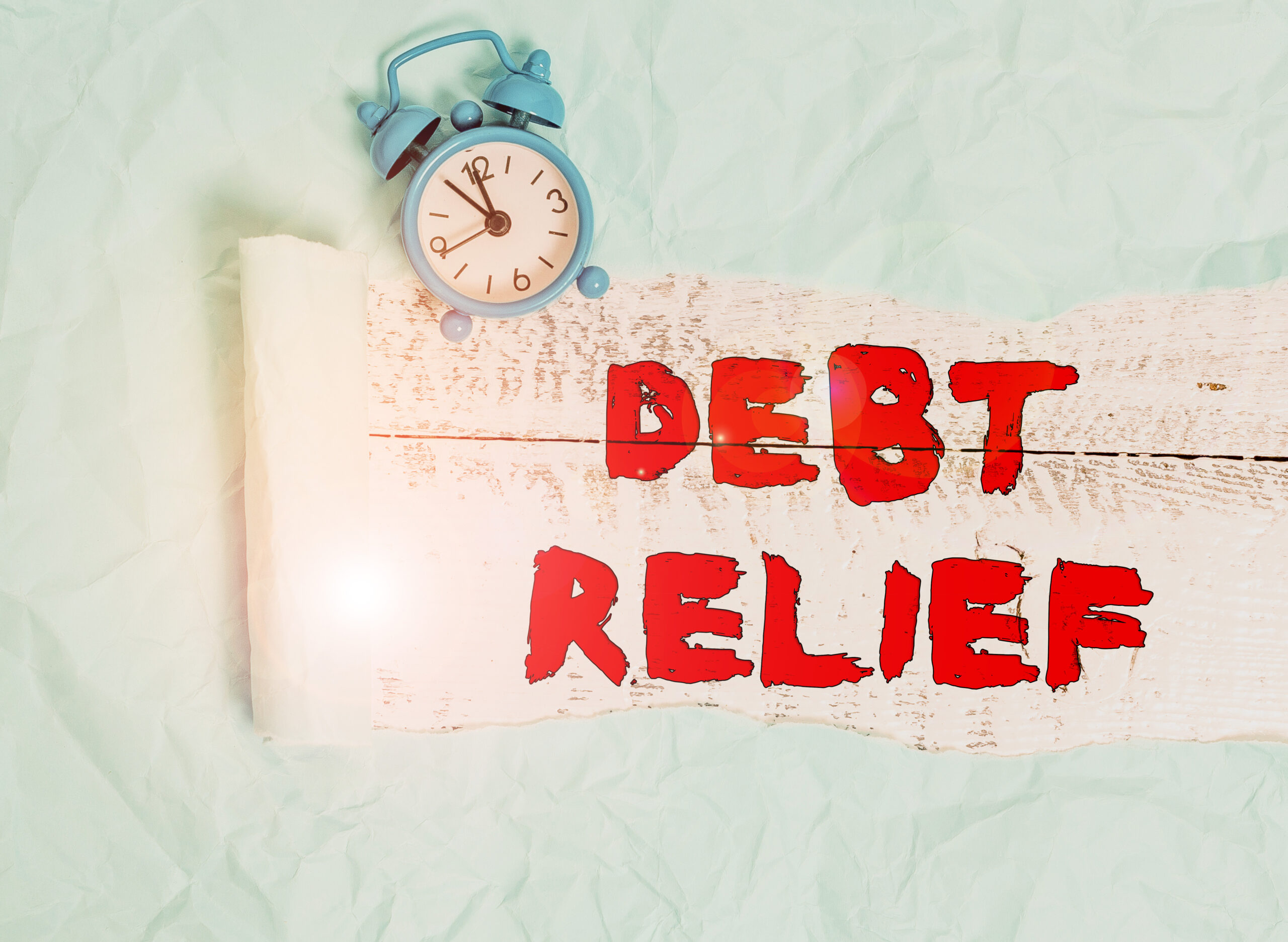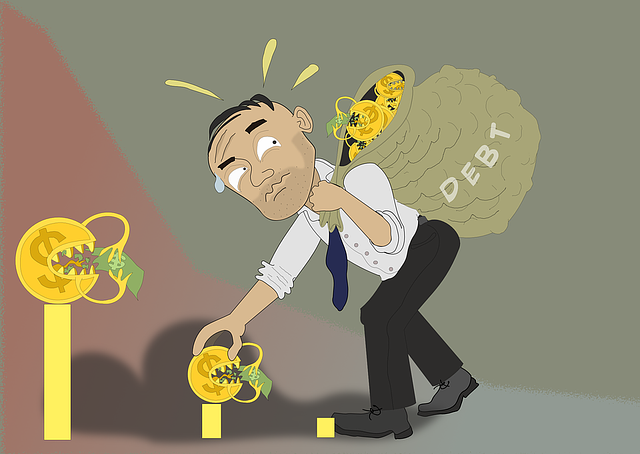
Conceptual hand writing showing Debt Relief. Concept meaning a reduction in the amount of debt that a country has to pay Alarm clock and torn cardboard on a wooden classic table backdrop
Debt can be a crushing burden, one that can take its toll on both our finances and our emotional wellbeing. Whether it’s student loan debt, medical bills or credit card interest rates, the stress of managing payments can seem overwhelming and demoralizing. But there is hope! There are a variety of federal and state debt relief programs designed to help individuals break free from their financial burdens.
From income-driven repayment plans to debt consolidation, bankruptcy to tax relief initiatives – explore these six debt relief programs to see which could provide you with the assistance and guidance you need to regain control of your finances and start fresh.
1) Credit Counseling Services
If you find yourself wondering ‘what is debt forgiveness program?’ we’re here to help. This is when a lender agrees to write off some or all of the debt owed by a borrower. And with professional help, you can get valuable advice on how to do just that, along with how to create and follow a budget, manage expenses, and work towards becoming financially independent again.
They will also analyze your unique situation and recommend specific solutions that can help you pay off your debts and rebuild your credit score. By using these services, borrowers can gain a greater understanding of their financial situation and learn how to make better decisions in the future.
2) Income-Driven Repayment Plans
These plans, which are offered by the federal government, allow borrowers to make monthly payments based on their income and family size instead of the total amount that they owe. This helps lower students’ monthly payments and prevent them from defaulting on their loans by allowing them to pay only what they can afford.
Additionally, these plans provide flexible payment options that allow for more manageable repayment terms.
3) Debt Consolidation
This is one of the most popular debt relief options available today. It involves combining multiple loans or bills into one loan with a lower interest rate, thereby helping borrowers pay off their debts more quickly and easily. It also reduces the number of bills that need to be managed, making the whole process more efficient and less stressful.
Moreover, debt consolidation can reduce interest rates, lessen monthly payments, or both.
4) Bankruptcy
Declaring bankruptcy is an option for individuals who are struggling with debt. It’s a powerful tool that can help eliminate some or all of their obligations, and can provide much-needed relief from financial worries.
There are two types of bankruptcy available to individuals; Chapter 7 and Chapter 13. Chapter 7 allows people to wipe out most or all of their debts, while Chapter 13 requires them to make payments over three to five years under the supervision of the court.
5) Student Loan Forgiveness Programs
Borrowers who have taken out student loans may qualify for loan forgiveness if they are employed in certain public service jobs or have made 120 on-time payments. This government program helps borrowers to become debt-free by forgiving a portion of their loan balance.
It is important that borrowers understand the terms of the agreement before signing up for these programs as there can be tax implications and other costs associated with them.
6) Tax Relief
Certain tax breaks such as the Earned Income Tax Credit (EITC) can help low-income workers reduce their overall tax burden, which in turn can help them pay off their debts faster. The EITC offers refunds to qualifying taxpayers, which can give them the financial boost they need to stay on top of their payments and get out of debt.
Additionally, the Child Tax Credit can provide additional funds to those with dependent children, while deductions such as the Mortgage Interest Deduction or Student Loan Interest Deduction can help reduce taxable income by allowing borrowers to deduct certain expenses.
By taking advantage of these tax breaks, struggling taxpayers can make significant strides towards becoming debt-free.
In Conclusion
At the end of the day, debt relief can be a powerful tool to help free you from financial bondage. As you explore the many options available to you, remember that no single solution fits all – research and weigh your options carefully so that you can choose the right plan for your needs. With patience and persistence, armed with knowledge about these eight debt relief programs, anyone can take back control of their finances and start fresh.
So don’t let yourself get overwhelmed by debt – take action today! Your future self will thank you for it.
For More Great Free Financial Advisor Articles, Read These:
You Can Get Rid of PMI On A Wells Fargo Loan

